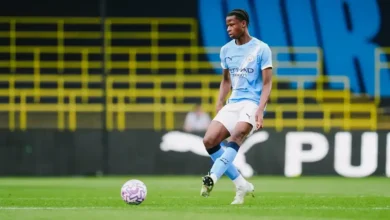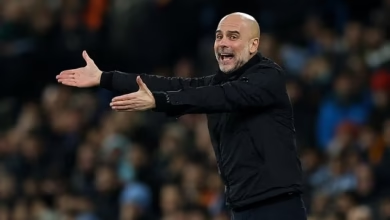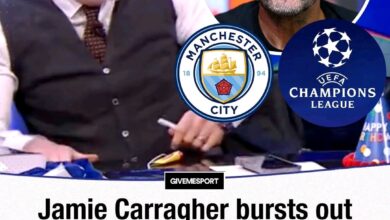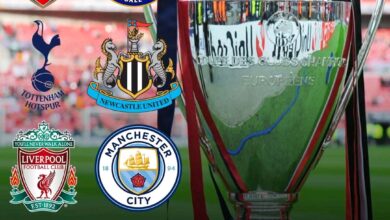Arsenal’s Strategic Opportunity: The Case for Signing Diogo Jota

The summer transfer window presents Arsenal with a unique opportunity to strengthen their attacking options, and the recent developments at Liverpool could provide the perfect opening. With the Reds reportedly securing Florian Wirtz from Bayer Leverkusen in a record-breaking deal, questions naturally arise about the future of their current attacking players, particularly Diogo Jota. For Arsenal, this situation represents more than just a potential transfer opportunity – it’s a chance to address fundamental squad depth issues while acquiring a proven Premier League performer.
Arsenal’s attacking requirements have become increasingly apparent following their recent campaign. The Gunners’ pursuit of sustained success across multiple competitions has highlighted the critical importance of squad depth, particularly in forward positions. The injury crisis that affected key players including Bukayo Saka, Gabriel Jesus, Kai Havertz, and Gabriel Martinelli throughout the season served as a stark reminder of how quickly attacking options can be depleted.
Mikel Arteta’s tactical approach demands versatility and quality from his attacking players. The Spanish manager has consistently emphasized the need for players who can adapt to different roles and maintain the team’s high standards regardless of the situation. This philosophy extends beyond simply having numbers in the squad – it requires players who understand the Premier League’s demands and can seamlessly integrate into Arsenal’s playing style.
The Gunners’ attacking strategy has evolved significantly under Arteta, with fluid movement and positional interchange becoming hallmarks of their approach. This system requires attackers who are comfortable operating in multiple positions and can contribute both goals and assists while maintaining defensive responsibilities. The complexity of this system means that new signings must possess not only technical ability but also the tactical intelligence to thrive in Arsenal’s structured yet dynamic setup.
Liverpool’s reported £116 million acquisition of Florian Wirtz represents a seismic shift in their attacking strategy. The German international’s arrival signals a clear intention to refresh their forward line, potentially displacing established players in the process. Wirtz, at just 22 years old, represents the type of long-term investment that could reshape Liverpool’s attacking dynamics for years to come.
This transfer creates a ripple effect throughout Liverpool’s squad, with established players potentially finding their playing time reduced. Jota, despite his consistent contributions, may find himself competing for minutes with a player who commands such a significant transfer fee. The Portuguese forward’s situation becomes particularly interesting when considering Liverpool’s likely tactical adjustments to accommodate their new star signing.
The financial commitment to Wirtz also suggests that Liverpool may need to balance their books through player sales. While Jota remains a valuable asset, his departure could provide the funds necessary to support other areas of squad improvement. This commercial reality, combined with the potential reduction in playing time, creates a scenario where a move could benefit all parties involved.
Jota’s record in English football speaks for itself. His 65 goals across his time at Liverpool demonstrate consistent productivity at the highest level. These numbers become even more impressive when considering the various roles he has fulfilled within Liverpool’s system. Whether deployed as a central striker, left winger, or in a more fluid attacking role, Jota has consistently found ways to contribute meaningfully to his team’s success.
The Portuguese international’s goal-scoring record reflects not just his clinical finishing but also his ability to find space in congested penalty areas. His movement off the ball and timing of runs have been crucial elements in Liverpool’s attacking play, skills that would translate effectively to Arsenal’s system. The Premier League experience factor cannot be overstated – Jota understands the league’s physical demands, tactical nuances, and psychological pressures that often challenge players transitioning from other competitions.
Beyond pure goal-scoring statistics, Jota’s all-around contribution to Liverpool’s play has been significant. His work rate, pressing intensity, and willingness to track back defensively align perfectly with the modern expectations of Premier League forwards. These qualities make him an attractive proposition for any team seeking to maintain high standards across multiple competitions.
Arsenal’s current tactical setup under Arteta would suit Jota’s skill sets exceptionally well. The Gunners’ emphasis on quick passing combinations, positional rotation, and clinical finishing in the final third matches perfectly with Jota’s strengths. His experience in similar systems at Liverpool would significantly reduce the adaptation period typically required for new signings.
Arteta’s preference for attackers who can interchange positions during matches would be perfectly served by Jota’s versatility. The Portuguese forward has demonstrated his ability to operate effectively across the front line, providing the tactical flexibility that modern football demands. This adaptability becomes crucial during the intense fixture schedules that Arsenal faces across multiple competitions.
The technical requirements of Arsenal’s possession-based approach would not present challenges for a player of Jota’s caliber. His first touch, passing accuracy, and ability to retain possession under pressure have been consistently demonstrated throughout his Premier League career. These skills would integrate seamlessly into Arsenal’s patient build-up play and quick transition phases.
One of Arsenal’s most pressing concerns has been the lack of adequate depth in attacking positions. The injury problems experienced last season highlighted how quickly the team’s attacking options can become limited. Jota’s arrival would provide immediate depth while also raising the competitive standards within the squad.
The presence of an experienced, proven goalscorer would benefit Arsenal’s younger attacking players. Competition for places often drives improved performances, and Jota’s professional approach and winning mentality could positively influence the entire attacking unit. His experience in high-pressure situations and knowledge of what it takes to compete at the highest level would be invaluable assets.
Squad rotation becomes increasingly important as Arsenal looks to compete effectively across multiple fronts. European competitions, domestic cup runs, and Premier League commitments require managers to distribute playing time intelligently. Having a player of Jota’s quality available for rotation would allow Arteta to maintain tactical consistency while managing player workloads effectively.
From a financial perspective, Jota represents excellent value in the current transfer market. With his contract running until 2027 and his age at 28, Liverpool may be willing to negotiate a reasonable fee, particularly if they need to fund other transfer activities. The estimated £34 milion valuation appears modest for a player with such proven Premier League credentials.
Arsenal’s financial position has improved significantly in recent years, providing the club with increased flexibility in the transfer market. The potential acquisition of Jota would represent a strategic investment rather than a speculative gamble. His immediate impact potential and resale value protection make this type of signing particularly attractive from a business perspective.
The cost-benefit analysis strongly favors this type of transfer. Rather than investing heavily in unproven talent from other leagues, Arsenal could secure a player who has already demonstrated his ability to perform consistently at the required level. This approach reduces risk while providing immediate quality improvements to the squad.
The timing of this potential transfer opportunity could not be better for Arsenal. With Liverpool’s focus on integrating Wirtz, Jota’s availability creates a unique window for the Gunners to strengthen their squad with minimal competition from other clubs. Acting quickly on this opportunity could prevent other teams from entering the bidding process.
Transfer market dynamics often favor clubs that can identify and act upon opportunities created by other teams’ activities. Liverpool’s significant investment in Wirtz creates exactly this type of secondary opportunity. Arsenal’s ability to capitalize on such situations demonstrates the strategic thinking that separates successful transfer windows from disappointing ones.
The broader Premier League landscape also supports this type of move. With several top clubs focusing on younger, developmental signings, there may be less competition for experienced players like Jota. This market positioning could allow Arsenal to complete the transfer without the premium prices often associated with highly contested targets.
Jota’s integration into Arsenal’s squad would likely be smoother than many alternative signings. His Premier League experience eliminates concerns about adaptation to English football, while his professional reputation suggests he would quickly establish positive relationships within the dressing room. These factors often determine the success or failure of transfer moves.
The long-term planning implications are equally positive. While Jota is 28, his playing style and physical condition suggest he could maintain his effectiveness for several more seasons. This timeline aligns well with Arsenal’s current competitive cycle and provides stability while younger players continue their development.
Arsenal’s academy system continues to produce promising attacking talents, and having an experienced player like Jota available as a mentor could accelerate their development. The Portuguese international’s professional approach and winning mentality would set positive examples for younger squad members.
Adding Jota to Arsenal’s attacking options would provide several competitive advantages. His goal-scoring threat from multiple positions would make Arsenal less predictable and harder to defend against. Opposition teams would need to account for his movement and finishing ability, potentially creating more space for other Arsenal attackers.
The psychological impact of signing a proven Premier League performer should not be underestimated. Such moves demonstrate ambition and can boost confidence throughout the squad. Players often respond positively when they see their club actively strengthening the team with quality additions.
From a strategic positioning perspective, acquiring Jota would represent a statement of intent regarding Arsenal’s competitive ambitions. It would signal to rivals, players, and fans that the club is serious about building a squad capable of sustained success across multiple competitions.
Every transfer carries inherent risks, but Jota’s profile presents fewer concerns than many alternatives. His Premier League experience mitigates adaptation risks, while his consistent performance history reduces concerns about his ability to maintain standards. The primary risk factors – age and injury history – appear manageable given his current condition and playing style.
The financial risk is also limited given the reasonable valuation and Jota’s proven ability to maintain his market value. Even if the transfer doesn’t achieve all its objectives, the downside risk appears minimal compared to the potential upside benefits.
Arsenal’s medical and scouting departments would obviously conduct thorough due diligence, but Jota’s public profile and recent performance data provide considerable transparency regarding his current capabilities and future prospects.
The potential availability of Diogo Jota presents Arsenal with exactly the type of opportunity that successful clubs must recognize and act upon. His Premier League experience, proven goal-scoring ability, and tactical versatility make him an ideal addition to Arsenal’s attacking options. The timing, created by Liverpool’s pursuit of Wirtz, may not present itself again.
For Arsenal, this represents more than just another transfer opportunity – it’s a chance to address squad depth issues while acquiring a player who could make an immediate impact. The reasonable financial commitment, combined with the significant potential benefits, makes this a decision that could influence Arsenal’s competitive prospects for several seasons.
In the modern game, the margins between success and disappointment are often determined by the quality of squad depth and the ability to maintain standards when key players are unavailable. Jota’s addition would significantly improve Arsenal’s position in both areas while providing the experience and winning mentality that championship-challenging teams require.
The question for Arsenal is not whether Jota would improve their squad – the evidence clearly supports that conclusion. Instead, the question is whether they can recognize and act upon this strategic opportunity before other clubs identify the same possibility. In the fast-moving world of modern football transfers, hesitation often means missed opportunities that may not arise again.
Arsenal’s ambitions for the coming seasons require bold, strategic thinking in the transfer market. The potential acquisition of Diogo Jota represents exactly this type of thinking – identifying value, acting on opportunity, and building a squad capable of sustained success. For a club with Arsenal’s aspirations, this is precisely the type of transfer that could make the difference between progress and stagnation.














